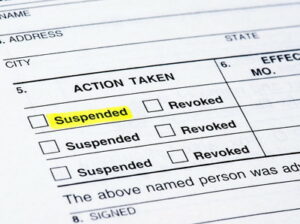 The United Kingdom Gambling Commission (UKGC) handles the issuing of gambling licences in the UK. Once a company holds such a licence, it can offer gambling services to players in the country. This has been the case since the Gambling Act 2005 became law.
The United Kingdom Gambling Commission (UKGC) handles the issuing of gambling licences in the UK. Once a company holds such a licence, it can offer gambling services to players in the country. This has been the case since the Gambling Act 2005 became law.
Now, the regulatory body has become one of the most known in the world. It can issue licences to companies based both within the UK and offshore. If the company meets the necessary requirements, it can apply for one of these. Yet it also must maintain its adherence to the rules of that licence, too.
Should a company fail to do so, the UKGC is well within its rights to suspend or revoke the licence. It is not beyond the bounds of gambling companies to breach the rules of their licences. This usually results in a fine and/or an official warning and there have been several instances of companies losing their licence to operate, too. That’s what we’re going to look at today. Here, you can find out more about all the companies that have had their licences suspended or revoked.
List Of License Suspensions / License Revocations
| Brand | Year | Reason for Licence Suspension/Revocation |
|---|---|---|
| LEBOM Limited | 2022 | Failure to integrate with self-exclusion scheme, GAMSTOP |
| Bet-At-Home | 2022 | Suspected social responsibility and anti-money laundering failures |
| Goldchip Limited | 2022 | Suspected social responsibility and anti-money laundering failures |
| Martin Henry Bailey | 2021 | Concerns over activities carried out being contrary to the Gambling Act |
| PlayerFT Limited | 2021 | Failure to integrate with self-exclusion scheme, GAMSTOP |
| Lottery England Limited | 2021 | Concerns over activities carried out being contrary to the Gambling Act |
| Nektan (Gibraltar) Limited | 2021 | Activities carried on in a manner which is inconsistent with licensing objectives |
| BetIndex Limited | 2021 | Activities carried out in reliance on the licence, but not in accordance with a condition of the licence |
| Caesars Entertainment | 2021 | A Personal Management Licence (PML) was revoked due to non-payment of licence fees |
| Silverbond Enterprises Limited | 2020 | Change in corporate control, which Commission was not satisfied with to issue a licence |
| Genesis Global | 2020 | Social responsibility and money laundering failures discovered |
| Dynamic | 2020 | Failure to integrate with self-exclusion scheme, GAMSTOP |
| Sportito | 2020 | Failure to integrate with self-exclusion scheme, GAMSTOP |
| Triplebet | 2020 | Social responsibility and money laundering failures discovered |
| International Multi-Media Entertainments Limited | 2020 | Suspected social responsibility and anti-money laundering failures |
| Stakers Limited | 2020 | Compliance issues |
| Addison Global Limited | 2020 | Suspected breach of a licence condition |
| EveryMatrix Software Limited | 2019 | Operator’s inability to offer remote facilities for real event betting and operate a remote casino |
| MaxEnt Limited | 2019 | Concerns relating to the operator’s finances |
2022

In comparison to some other years, 2022 was quite quiet with regard to licence action. The Gambling Commission tackled three companies for a couple of different reasons. The most recent of those was LEBOM Limited, which occurred on November 3. The company had its licence suspended for failing to integrate with GAMSTOP. The self-exclusion scheme is something that players are able to use to try and stop gambling. It provides help with quitting via various means. As of 2020, the Commission made it mandatory for all licensed business to take part in GAMSTOP. Players who have registered also shouldn’t be able to receive custom from such sites.
LEBOM Limited, trading as lebom.app, had to suspend its UK operations straight away. Only when it had integrated GAMSTOP in full would it have its licence reinstated. A review of the licence by the Commission also began on the same date. The suspension did not prevent customers from accessing their accounts or withdrawing. Five days after, the regulatory body lifted the licence suspension. Remedial action had occurred by LEBOM in a swift timeframe.
Suspected Anti-Money Laundering and Social Responsibility Failures Lead to Two Licence Suspensions
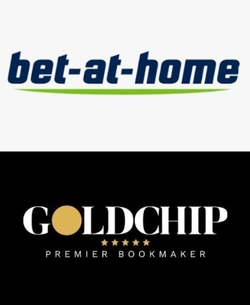 Earlier on in 2022, the companies Bet-at-Home and Goldchip Limited had their licences suspended, too. This occurred in July and May of 2022, respectively. In both instances, the Commission suspected failures in two areas. It highlighted anti-money laundering and social responsibility issues. As a result, investigations into both brands began. For both, the UKGC made it clear that treating consumers in a fair way should be a focus during the suspension. Again, consumers could still access their accounts and withdraw funds.
Earlier on in 2022, the companies Bet-at-Home and Goldchip Limited had their licences suspended, too. This occurred in July and May of 2022, respectively. In both instances, the Commission suspected failures in two areas. It highlighted anti-money laundering and social responsibility issues. As a result, investigations into both brands began. For both, the UKGC made it clear that treating consumers in a fair way should be a focus during the suspension. Again, consumers could still access their accounts and withdraw funds.
Goldchip Limited remains active in the UK, with its licence suspension lifted. This only managed to take place because it sold its business. A financial technology (FinTech) company chose to buy it. Deer Cashmere Holding Company acquired the brand in June of 2022. As a result, it was able to push Goldchip back into the UK market. It remains current with its account filings. The story is a different one for Bet-at-Home, though.
Rather than work on having its suspension lifted, Bet-at-Home chose to leave the UK market. At first, the company opted to disable new customer registrations and deposits. Betting was also disabled alongside. Yet it released a statement afterwards confirming it would not contest the suspension and Bet-at-Home took the decision to surrender its licence. Not long before the suspension, the company had reported a revenue drop of over 50%. This saw it lose around €14 million in gross betting and gaming revenue for Q1 of that year.
2021
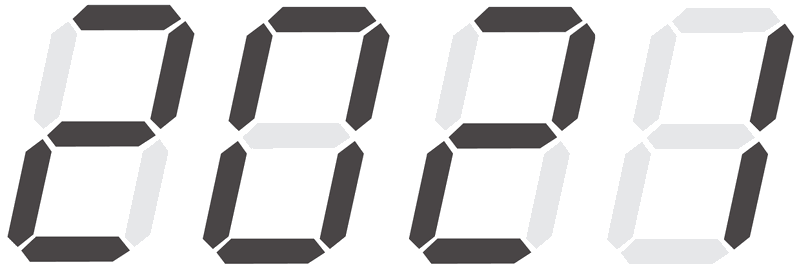
Six licence suspensions took place in 2021. In July, Martin Henry Bailey had their licence suspended. The Commission conducted a review under section 116 of the Gambling Act 2005. This came about due to concerns over activities that may have taken place contrary to the Act. These may not have been in accordance with conditions of the licence held. Martin Henry Bailey is currently a Director of the Dave Bowe Limited brand.
At the time of his suspension, he operated a single shop – Bailey’s Racing located in Basildon. Previous to this, he operated various other shops across the UK. In November of 2019, Bailey received a warning and a £5,000 penalty. That occurred after he employed his 17-year-old son at Lingfield Park racecourse. Bailey also filed false documents relating to his son’s age.
Only five days before that, PlayerFT Limited had its licence suspended, too. The Commission instigated a review of its licence in the initial stages. Yet after PlayerFT failed to integrate with GAMSTOP, the suspension occurred. Six days after the suspension, the company surrendered its UKGC licence. As a result, PlayerFT exited the UK market.
Concerns Over Gambling Operator Activities Lead to Suspensions
 It was one month before this that Lottery England Limited also saw its licence suspended. A review of the company also occurred over concerns about its activities. These, the Commission said, may have been contrary to the Act or not under the conditions. The suspension took place on May 14, 2021. Lottery England Limited based itself out of Kent, holding a non-remote external lottery manager licence.
It was one month before this that Lottery England Limited also saw its licence suspended. A review of the company also occurred over concerns about its activities. These, the Commission said, may have been contrary to the Act or not under the conditions. The suspension took place on May 14, 2021. Lottery England Limited based itself out of Kent, holding a non-remote external lottery manager licence.
This allowed it to manage lotteries and provide lottery services for charities. Conditions around such licences emphasise the lotteries cannot take place for commercial gain. Fees are also due every year. It did have the suspension lifted in the end. Lottery England Limited has had various instances of compulsory strike-off action since, though. Its account filings are currently overdue.
Around two weeks before that suspension, Nektan (Gibraltar) Limited suffered the same. This came about following an ongoing section 116 review into the operator. The UKGC suspected Nektan of breaching its licence conditions. As a result, it may have been unsuitable to continue with its licensed activities. That licence suspension became active as of April 27, 2021. Through its licence, Nektan was able to operate remote bingo and casino sites. This included both Cloud Casino and Jackpot Mobile Casino. In 2020, Nektan had its shares suspended after failing to publish its annual report. This led to the company’s removal from the London Stock Exchange.
A Licence Revocation and a Company Entering Administration
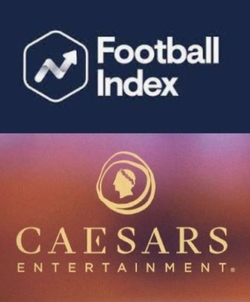 On March 12 of 2021, the Commission suspended the operating licence of BetIndex Limited. Trading as Football Index, the suspension came about following the section 116 review. The UKGC had concerns over the activities taking place in relation to the licence. The operations had a reliance on the licence but were not in accordance with a specific condition. This led to the Betting and Gaming Council suspending their membership, too. Solicitors Leigh Day then investigated claims on behalf of ‘traders’ using Football Index. They believed that they had received misleading information from the company.
On March 12 of 2021, the Commission suspended the operating licence of BetIndex Limited. Trading as Football Index, the suspension came about following the section 116 review. The UKGC had concerns over the activities taking place in relation to the licence. The operations had a reliance on the licence but were not in accordance with a specific condition. This led to the Betting and Gaming Council suspending their membership, too. Solicitors Leigh Day then investigated claims on behalf of ‘traders’ using Football Index. They believed that they had received misleading information from the company.
Football Index allowed its users to buy imaginary shares. Through these, they had the chance to win daily payouts, based on real player performance. The top trending footballers each day, therefore, provided users with payouts. Yet changes in March of 2021 issued new shares and reduced the dividend payout. This decreased from 33p to 6p per share. All open bets were also reduced as a result, despite people opening them based on higher payouts. BetIndex went into administration on March 11, immediately ceasing trading. At the time, BetIndex said customer funds were “in a segregated account”. Malcolm Sheehan QC conducted an independent expert review of the company. This ran for 13 weeks before he published his findings in a report.
The other licence issue in 2021 came about on March 3. The Commission acted in general against Caesars Entertainment at that time. In April of 2020, the company received a £13 million fine from the UKGC. An investigation into PML holders was also launched alongside following concerns. The result of that saw seven holders receive licence warnings and two receive advice to conduct letters. Three PML holders surrendered their licence in a voluntary way. One holder under investigation had their licence revoked due to non-payment of fees. In a separate incident, another holder had their licence revoked as well. This came about following an altercation with a guest at his place of work.
2020
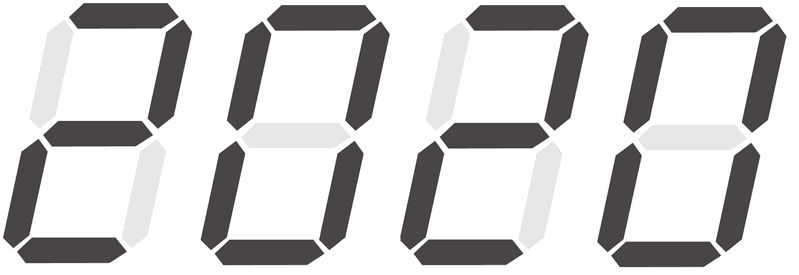
So far, 2020 has seen the largest number of licence revocations/suspensions. Eight companies experienced action taken against them in the year of COVID-19. On November 18, Silverbond Enterprises Limited saw its licence revoked. The company, which ran Park Lane Casino, went through a change in corporate control. The UKGC was not satisfied with the new Licensee after that change. It determined that it would not have issued a licence to the controller, had they been in that position at the time of the application.
A statement from the UKGC Executive Director at the time, Helen Venn, offered more insight. She said:
“We revoked this licence because we are not satisfied as to the source of funds (SOF) used to acquire and support the Licensee at the time of the change of corporate control or to whom future profits of the Licensee would be paid…”.
She went on to comment on the concerns with the sustainability of the new controller. On November 17, Silverbond Enterprises Limited appealed the decision of the Commission. Licence revocation was stopped until the appeal outcome. Due to this, the Park Lane casino was able to continue operating pending the result of the appeal. In the end, Silverbond entered administration on June 9, 2022. It was also announced on the same date that Metropolitan Mayfair had bought the casino. This company now runs both Park Lane Club and Metropolitan Casino Mayfair.
Genesis Global also has its licence suspended in July of 2020. The UKGC suspected the company – responsible for running 14 websites – of breaching conditions. While the investigation into Genesis took place, its licence suspension was also in effect. It held a Combined Remote Operating Licence – Real Event Betting, Virtual Betting and Casino. The UKGC highlighted compliance issues as the reason for this. This suspension lifted three months later after significant compliance improvements. Genesis still received a £3.8 million fine and a warning, though.
Failure to Enrol in GAMSTOP and AML + Social Responsibility Issues Lead to More Suspensions
 Partaking in GAMSTOP is something that all operators need to do in the UK. It’s not altogether difficult to get involved. Yet it seems as though it was for two operators on April 3 of 2020. Dynamic, trading as Prophet, and Sportito didn’t get the memo, it seems. All online operators received notification that they had to partake in GAMSTOP by March 31. That notification came three months prior. Those two companies failed to comply, so the UKGC suspended their licences. Not long after the suspension, Sportito integrated GAMSTOP and this lifted the licence suspension, allowing it to operate again. Dynamic’s suspension remained in place until April 8.
Partaking in GAMSTOP is something that all operators need to do in the UK. It’s not altogether difficult to get involved. Yet it seems as though it was for two operators on April 3 of 2020. Dynamic, trading as Prophet, and Sportito didn’t get the memo, it seems. All online operators received notification that they had to partake in GAMSTOP by March 31. That notification came three months prior. Those two companies failed to comply, so the UKGC suspended their licences. Not long after the suspension, Sportito integrated GAMSTOP and this lifted the licence suspension, allowing it to operate again. Dynamic’s suspension remained in place until April 8.
It was in February of 2020 that Triplebet also had its licence suspended. The company operated a betting exchange and a remote casino under the ‘Matchbook’ name. On February 17, it had a package of sanctions placed against it. These came about due to social responsibility and money laundering failings. An investigation took place, discovering serious failings for the company. In one instance, a player was able to gamble a large sum of money in only two days. Triplebet’s licence suspension came with a £740,000 fine, too. This stayed in place until Friday, August 7. It was only by this time that the company implemented remedial measures. Matchbook remains in operation with a full UK gambling licence today.
AML and social responsibility issues resulted in International Multi-Media Entertainments (INME) also receiving a suspension. On March 17, a licence review of the company was undertaken. Trading as Lotteries.com, the Commission decided to suspend its licence during the investigation. The reason given for this was that it pertains to the operator’s abilities in two areas:
- Capability of offering remote facilities for Remote casino
- Capability of offering remote facilities for remote general betting standard (real event).
Concerns over AML and social responsibility saw the suspension take effect straight away. The UKGC investigation began in January of 2020. After almost one year of its review, INME chose to surrender its UK licence. The Commission had the mindset to revoke it in any case. It said that customers were complaining about repeated calls from INME sales agents. One customer in her 90s received calls several times a week. Furthermore, 75% of the operator’s customers were over 60 years old and 20% under 80. The UKGC decided that the company had too much of a focus on older people. The vulnerabilities of the customer base were unlikely to have been something INME considered. Significant breaches across a range of requirements also led to the outcome.
Compliance Issues and Suspected Breach of a Licence Condition in Early 2020
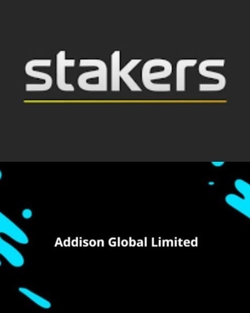 Stakers Limited was another company under investigation in 2020 for compliance issues. This led to the suspension of its licence following many complaints over such. The UKGC suspected that Stakers Limited had breached a condition of its licence and it suggested that the company is unfit to carry on offering licensed activities in the UK. That came into effect on March 4.
Stakers Limited was another company under investigation in 2020 for compliance issues. This led to the suspension of its licence following many complaints over such. The UKGC suspected that Stakers Limited had breached a condition of its licence and it suggested that the company is unfit to carry on offering licensed activities in the UK. That came into effect on March 4.
Stakers opted to appeal this decision in First-Tier Tribunal court. Yet a written decision from Judge Aleksander dismissed this. The Tribunal refused the the firm’s initial application to appeal and by the time of the hearing, Stakers remote casino operations didn’t exist anymore. The Tribunal result saw Stakers Limited give up its UK licence.
Addison Global Limited, trading as Moplay, was the first to have its licence suspended in 2020. The interim suspension took place during a review of the company. Again, the breaching of a licence condition stood out as the deciding factor in this. This occurred on February 20. Not long after that time, on March 12, the licence for Addison Global lapsed. This was due to the company entering liquidation and it is not able to provide gambling to consumers in the UK.
2019
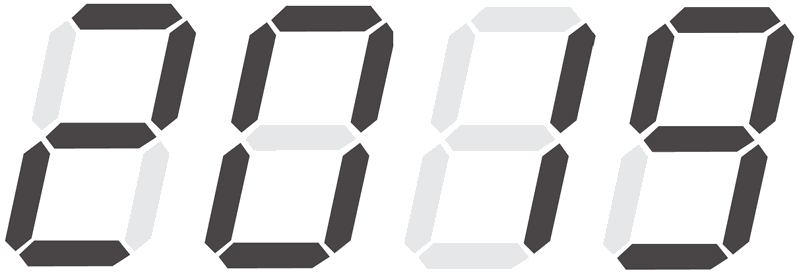
There were two licences tackled by the UKGC in 2019. On September 5, a review into EveryMatrix Software Limited began. This came about following compliance activity, including examining the customer interaction setup. The Commission took the decision to suspend part of the EveryMatrix the licence. This meant it was still able to manufacture, supply, install and adapt gambling software. Yet it could not offer remote facilities for real event betting other than pool betting or betting on virtual events. It also couldn’t operate a remote casino. The regulatory body lifted the licence suspension later. Today EveryMatrix has three remote licences – betting host, gambling software, game host.
The only other action came about on June 18 of 2019. This saw the Commission choose to revoke the operating licence of MaxEnt Limited. Concerns over the company’s finances and information provided to the UKGC arose. This happened due to a change in company ownership. The Commission questioned the SOF used for the deal. It spoke of having little satisfaction that it would have granted a licence to the operator’s new owner. MaxEnt operated the Slotty Vegas and BetAt brands in the UK at that time.
On June 18, the UKGC received information that MaxEnt had appealed the revocation. This saw its licence revocation receive a stay until the appeal outcome. Even back then, MaxEnt stated that it was being “careful” in its consideration of the UK market. By January of 2020, the company chose to exit the market instead, citing Brexit concerns. Its appeal against the UKGC’s decision was subsequently withdrawn. As a result, the licence revocation came into effect on January 21, 2020.